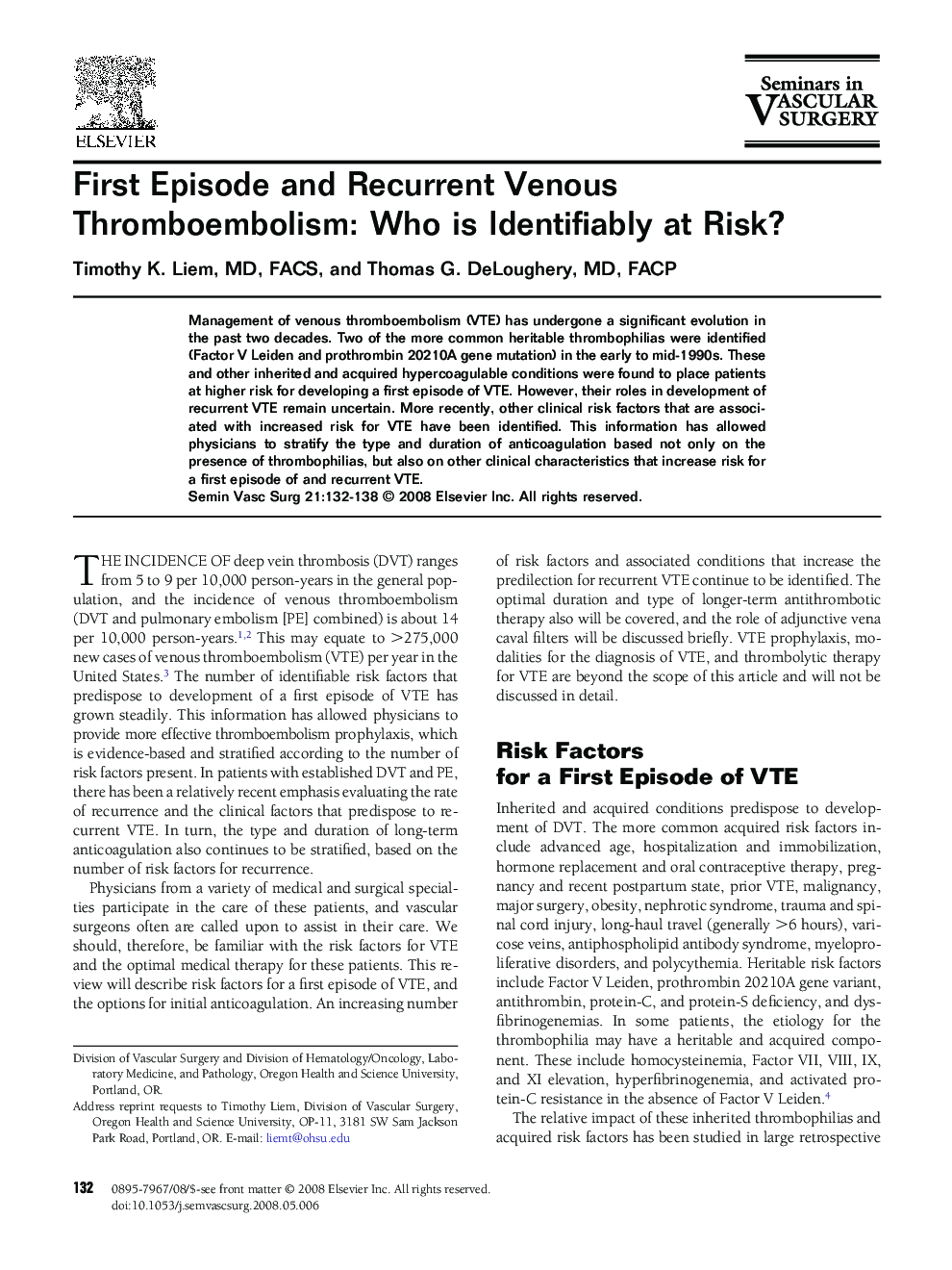| Article ID | Journal | Published Year | Pages | File Type |
|---|---|---|---|---|
| 3026397 | Seminars in Vascular Surgery | 2008 | 7 Pages |
Abstract
Management of venous thromboembolism (VTE) has undergone a significant evolution in the past two decades. Two of the more common heritable thrombophilias were identified (Factor V Leiden and prothrombin 20210A gene mutation) in the early to mid-1990s. These and other inherited and acquired hypercoagulable conditions were found to place patients at higher risk for developing a first episode of VTE. However, their roles in development of recurrent VTE remain uncertain. More recently, other clinical risk factors that are associated with increased risk for VTE have been identified. This information has allowed physicians to stratify the type and duration of anticoagulation based not only on the presence of thrombophilias, but also on other clinical characteristics that increase risk for a first episode of and recurrent VTE.
Related Topics
Health Sciences
Medicine and Dentistry
Cardiology and Cardiovascular Medicine
Authors
Timothy K. MD, FACS, Thomas G. MD, FACP,
